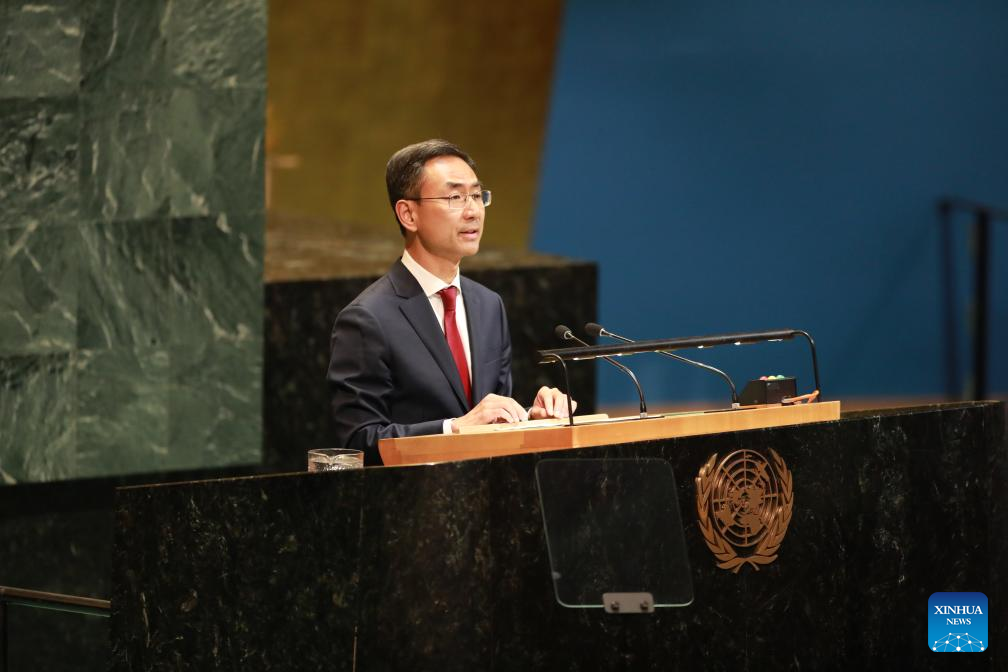
UNITED NATIONS - Promoting and completing the decolonization process and eliminating the colonial mentality are indispensable components of better global governance, a Chinese envoy said Monday.
In September, China put forward the Global Governance Initiative, calling for building a more just and equitable global governance system, said Geng Shuang, China's deputy permanent representative to the United Nations, in remarks on decolonization items at the general debate of the Fourth Committee of the 80th Session of the UN General Assembly.
Geng recalled that 65 years ago, the UN General Assembly adopted the Declaration on the Granting of Independence to Colonial Countries and Peoples, sounding a clarion call for ending colonialism and inspiring colonial countries and peoples in their pursuit of freedom, equality and independence.
ALSO READ: China champions vision and action
Today, despite the end of colonial occupation and the collapse of colonial dominance, the colonial mentality still persists and its legacy of hegemony and power politics remains rampant, he said, adding that eradicating colonialism entails more than ending military occupation and other physical forms of exploitation and oppression.
"More importantly, it is imperative to resist the intangible colonial mindset in ideological, political, economic and cultural domains, eradicate the remnants of colonial legacy, uphold the principle of sovereign equality, and safeguard international fairness and justice," he said.
He called on UN member states to support a draft resolution entitled International Day Against Colonialism in All Its Forms and Manifestations, submitted recently by Venezuela on behalf of the Group of Friends in Defense of the Charter of the United Nations, and thus contribute to the completion of decolonization and the advancement of democratization and the rule of law in international relations.
READ MORE: Report: China promoter, contributor to global poverty reduction
Geng said China supports accelerating the decolonization process of the 17 non-self-governing territories, and stands by the peoples of these territories in their unremitting efforts to exercise their right to self-determination.
China also stands ready to work with the international community to seize the opportunity of the fourth international decade for the eradication of colonialism and accelerate the implementation of the decade's plan of action, he said.
Geng also pointed out that the question of the Malvinas Islands is an unresolved issue of colonialism, stressing that China has consistently advocated the settlement of territorial disputes between countries through peaceful negotiations in accordance with the purposes and principles of the UN Charter, and hopes all parties concerned will proceed on the basis of relevant UN resolutions and find a peaceful, just, and lasting solution to this issue.


